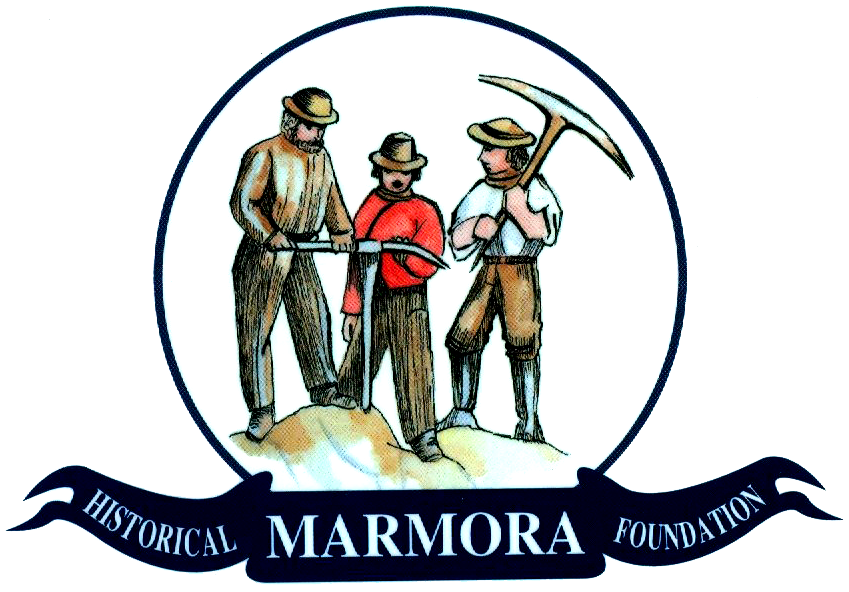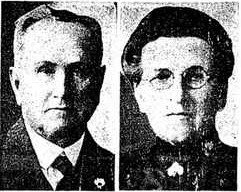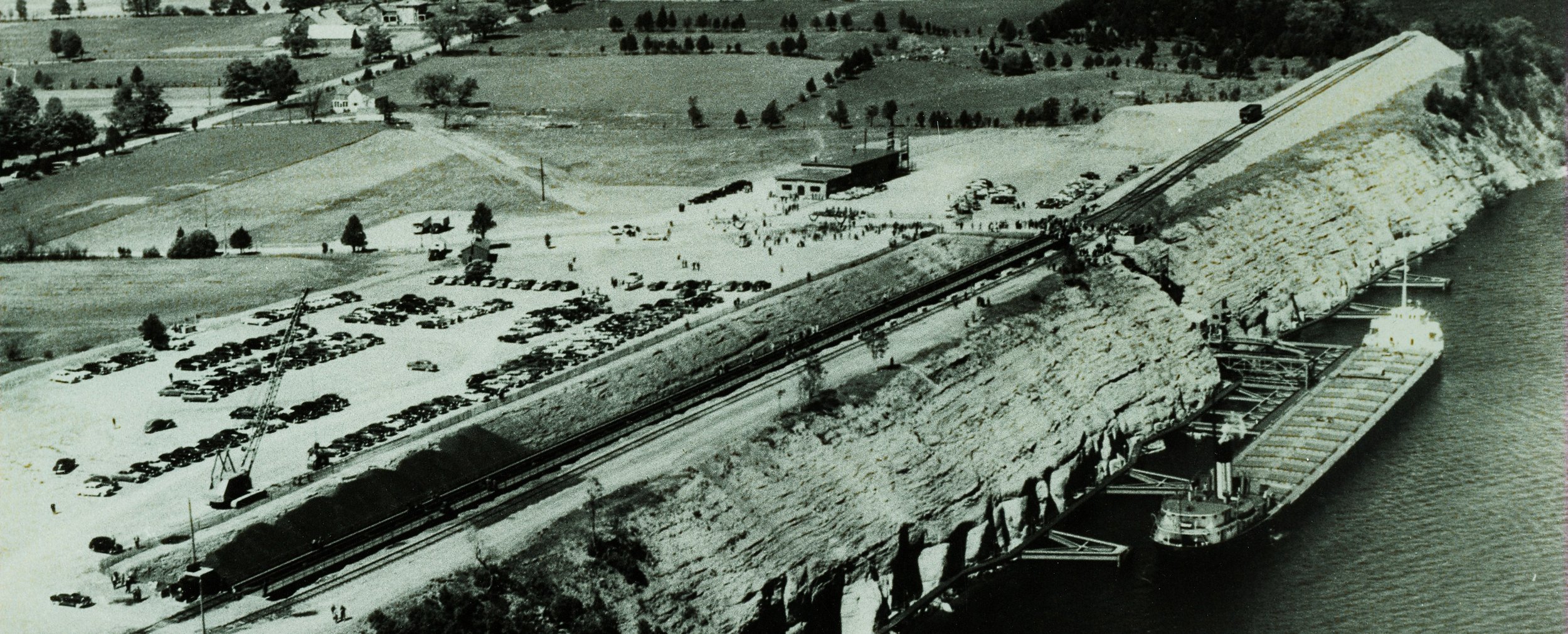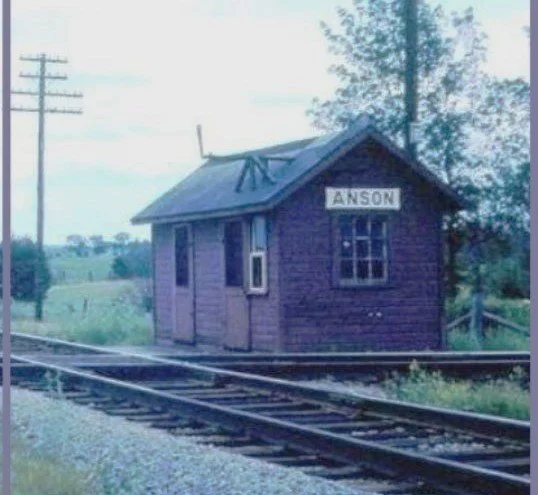"On Tuesday night, the store at Deloro occupied by P.J. Gillen and son, general merchants, was totally destroyed by fire. The origin of the fire is unknown and it had made such headway before it was discovered that it was impossible to save any of the contents of the store. The stock was partly covered by insurance, but the loss will be heavy. The building was owned by Mrs. Devine."
A 1988 directory lists Mr. C.J. Vizard as running t a general store in deloro that year. Mr. A.E. Price, in 1899, was operating as a general merchant, dealing in everything from dry goods to coal oil.
So the Marmora Herald incorrectly reported on Feb. 10, 1916. In fact, the building was erected by a Mr. Deremo on Mrs. Devine's land, with a lease that provided that it, and other buildings, must be removed by March 17, 1917. In March of 1909, the Doyle brothers purchased the general store and the lease from Mr. J.A. Deremo and within 5 months, the partnership was desolved, with Mr. Patrick Doyle purchasing the whole business from his brother Thomas. Patrick Doyle then sold the lease to P.J. Gillen, who lost the store to fire.
Realizing he still had value in the other buildings, Mr. Gillen sold his rights under the lease to Barney Callery, and in the spring of 1917, Callery, with the help of Deloro Smelting and Refining Company and its manager, S.B. Wright, moved the dwelling house onto mine property where it sits today.
P.J. Gillen
But the move did not run smoothly. Mrs. Devine sued Mr. Callery, Mr. S.B. Wright, the mine manager, and the mining company for the value of the house and other buildings, and for trespass. Mrs. Devine lost her case however, and the action was dismissed with costs. On appeal, she lost again and the case dismissed.
The Deloro Smelting and Refining Co. set to work to create the "Deloro Trading Company", operating as a co-operative, with officers and empolyees of the Smelting Company holding shares.
The Herald reported on Feb 27, 1919, "The store of the Deloro Trading Co. is now open at Deloro."
By April of that year, the Trading Company announced a fixed rate of six per cent per annum payable on shareholders stock, and the surplus profits to be divided yearly, pro-rata according to the amount of the individual shareholder's yearly purchases. As it turned out, six months later, shareholders received a 10% dividend!
Deloro Trading Company, original building, with sled
Deloro Trading Company, 1928, with additional window and horse and wagon
Deloro Trading Company, 1946, with gas pumps DONATED BY ROBIN RIDDIHOUGH
When Hilda Mumby was 14 years old she got a summer job at the Deloro General Store with Mr. Haacke. "He was the boss of the store. I did everything except sell gas. If anyone asked me my age I had to say "going on 16."
There was nowhere else to shop in Deloro. Everyone had a bill on which we wrote down the prices. On pay day, Mr. Crawford set up his desk in the store and everyone was paid and had cash to pay their bills.
Children came in with five cents and we allowed them behind the counter to choose candies. "There were two grocery deliveries per week and Norman Smith, the butcher, had a good area at the back of the store. "We did deliveries to the homes," said Hilda.
Brenda Brooks Skof adds:
"This was a "gathering" place for the children of Deloro including all the Brooks and Smith children. I remember specifically being sent down to the Deloro Store on a Saturday morning with 25 cents and coming back home with dinner of liver, potatoes and turnips. My father always wanted a good feed of liver after working a half day at the Plant every Saturday. The picture of Norman Smith (let) is of my Uncle Norman, the son of Harry and Daisy - A Love story in the village of Deloro",
Above photo sent to the Marmora Historical Foundation by Diane Barlow-Pequegnat. She adds, “ The boy on the right may be my father (John Barlow) My mom (Jean Caverly Barlow) said that my dad worked in the store in Deloro when he was a boy.... This picture was given to my mom (Jean Caverly) by my cousin. It came from my grandmother's collection (Eva Barlow). There is no date or names on the back of the photo. The boy on the left may be my uncle Maurice Barlow.”
Deloro General Store - 1972 with additional door
"All goods are sold for cash. SO NO BAD DEBTS have to be taken care of, and the support which so far has seen given the store is evidence that the idea is a good one and further that in Mr. C.P. Brown, the Trading Company has secured a most capable manager." (Marmora Herlad April 10, 1919)
In September of the same year, the post office, which had been located in Mrs. Devine's house, was moved into the store, with Mr. Brown as the postmaster and Miss Doyle as his assistant.
1933
Harry Ross Haacke
H. Beaver Hauser, Harry Ross Haacke, who hired Miss Scott (Mrs Joe Callery) and Hilda Mumby, Tom Brawley and Norman Smith all acted as managers for the company. Herb English stood in a secretary-treasurer for Tom Brawley.
Harry Ross Haacke
Norman Smith Photo submitted by Brenda skof
In 1961, however, the store was purchased by Claude and Helen Nichol to be run as a private business with the post office included. At that time, Gertie Kelly assisted in the store and worked there until 1971. George Nelson and Paul Giroux were later owners, but the store now remains vacant.
Mrs. Helen Nichol
The Deloro General Store acted as a back drop in the making of "LEST WE FORGET", a film by James A. Smith, paying tribute to Deloro's understated contribution to World War II. Click here to read more.
































